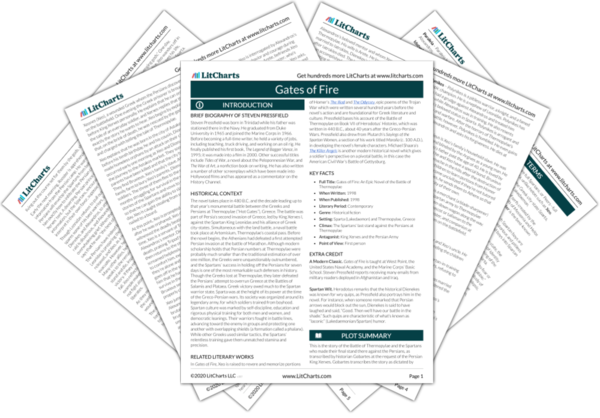Alexandros’s fortitude under pressure is a form of courage, too, although it’s not one that is as readily recognized by Spartans like Polynikes. Polynikes tries to convey to Alexandros that war is a good, purifying force for which mankind should be grateful. Andreia, valor, is the utmost in virtue, and every other virtue pales in comparison to it. Alexandros must be hardened to this truth. It remains to be seen whether he’ll accept this teaching.
